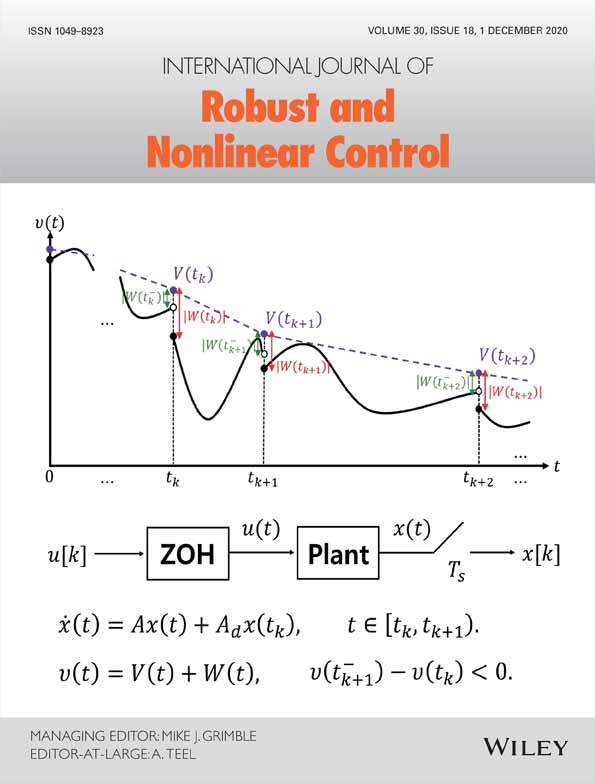A novel adaptive event-triggering scheme for network descriptor systems with time-delay
Funding information: Automation for Process Industries Fundamental Research Funds, 2013ZCX02; the National Natural Science Foundation of China, 61673099; 61673100
Summary
This article is concerned with the problem of the event-triggered H∞ control for network descriptor systems with time-delay under a novel adaptive event-triggering scheme. First, to save more limited communication resource, a novel adaptive event-triggering scheme is introduced to adaptively adjust the communication threshold. Second, by considering the network-induced delay, the system's time-varying delay, and the transmission scheme, a delay system method is used to build a novel time-varying delay system model. Based on this model and Lyapunov function technology, sufficient stability conditions with the H∞ disturbance performance to verdict admissible and stabilization conditions to codesign the controller gain are obtained in terms of linear matrix inequalities. Then, an event-triggered H∞ controller is proposed to stabilize descriptor systems with time-delay. Finally, a numerical simulation example and a comparing example are employed to illustrate the effectiveness and the advantageous performances of the proposed adaptive event-triggering scheme.




